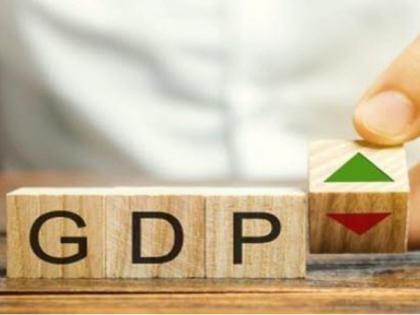Historically India-Pakistan war did not derail equities but impacts GDP: JM Financial
By ANI | Updated: May 12, 2025 13:02 IST2025-05-12T12:55:51+5:302025-05-12T13:02:38+5:30
New Delhi [India], May 12 : Despite the potential for heightened geopolitical tensions between India and Pakistan to escalate ...

Historically India-Pakistan war did not derail equities but impacts GDP: JM Financial
New Delhi [India], May 12 : Despite the potential for heightened geopolitical tensions between India and Pakistan to escalate into a military conflict, the Indian equity markets are unlikely to see a significant negative impact, according to a recent report by JM Financial.
The report draws on historical data to support its view, noting that while equity markets have largely remained resilient during past conflicts, the broader economy has not been as immune.
It said "Past data suggests that the Indian equity markets have not been negatively impacted significantly during such conflicts, but the Indian economy has been adversely affected".
The report highlighted that during previous wars including the Indo-China war of 1962, and Indo-Pak conflicts of 1965, 1971, and the Kargil war in 1999 Indian equity markets have shown limited adverse reactions. However, the economic fallout from such wars has been more pronounced.
The report noted that the Indian economy experienced a contraction of 0.8 per cent during the 1962 Indo-China war.
A more substantial impact was seen following the Indo-Pak war in 1965, when GDP growth declined by 2.6 per cent in that year, following a robust expansion of 7.5 per cent in 1964.
Similarly, in 1971, although GDP did not shrink, the conflict led to a marked slowdown growth slipped to 1.6 per cent from 5.2 per cent in the previous year.
Interestingly, the Kargil conflict of 1999 stands out as an exception. That year, India's GDP growth actually improved to 8.9 per cent from 6.2 per cent in 1998, suggesting that the economic impact of conflicts can vary based on external conditions and internal resilience.
While pointing out the vulnerabilities of GDP during wartime, the report also mentioned that the Indian economy today is significantly larger and more resilient than it was during any of the past conflicts.
Structural reforms, diversified economic activities, and stronger macroeconomic fundamentals are likely to provide a buffer against the full-blown economic shocks typically associated with armed conflicts.
Overall, while equities may remain relatively stable, any military escalation could still dent India's GDP performance, albeit less severely than in the past, given the country's current economic robustness.
Disclaimer: This post has been auto-published from an agency feed without any modifications to the text and has not been reviewed by an editor
Open in app